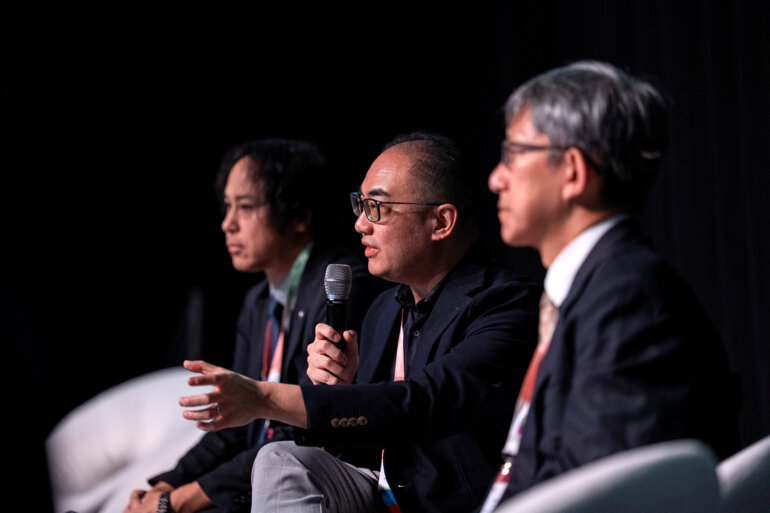While there has been significant progress in the development of these blood tests, hurdles remain including test sensitivity and false positives
Multi-cancer early detection (MCED) tests promise to screen for multiple cancer types at the same time using a simple blood draw, potentially enabling detection of cancers without using current screening approaches and augmenting traditional screening methods such as mammography or low-dose CT scanning. Importantly, they hold the promise of diagnosing patients earlier, when the chance for cure is higher. As presented at the ESMO Congress 2024 (Barcelona, 13–17 September), the results of several studies provide an update on the global progress with MCED tests and highlight some of the current barriers to delivering on their promise. While there has been significant progress in this field over the past few years, I see several important hurdles that remain to be overcome, including improving test sensitivity, navigating false positives, and most importantly establishing the impact of use of these tests on survival.
The ideal MCED test would have high sensitivity for the earliest stage cancers and high specificity to minimise false positives. The first study reported on the performance of a multi-analyte MCED test based on DNA methylation and proteins and reaffirmed its previously reported high specificity (Cancer Res. 2024;84(7Supp):LB100). The new results focused on the organ-specific sensitivity of this test in a large cohort of over 6,000 cancer and non-cancer samples (Abstract 69MO). Sensitivity varied by tumour type, ranging from 11.8% to 80.0%. However, sensitivity for stage I cancers was only 15.4%, indicating that in its present form, screening with this MCED test would miss the vast majority of stage I tumours.
The remaining studies all presented data on the Galleri® test, which analyses methylation of cell-free DNA to both detect cancers and predict their tissue of origin. One study presented the results from a real-world cohort providing new information about how the test performs outside of clinical trials (Abstract 1184P). The team focused on the potential utility of repeat testing approximately 6 months after a false positive MCED result (i.e. initial clinical workup was negative). They reported that in 69% of patients the second test was negative, consistent with the initial result being a false positive, while in 31% it was persistently positive. A significant subset of the latter group subsequently had cancers diagnosed clinically. These results suggest a potential approach for dealing with false positive results, although key questions remain such as the stage of cancers diagnosed after retesting and the cost/benefit of the double-testing approach.
The second abstract on the Galleri® test provided new information on patient-reported outcomes (Abstract 1183P). Using data from the prospective PATHFINDER study, researchers showed what one might intuitively suspect: that participants with a positive test result experienced greater distress and uncertainty than those who did not, although distress levels remained relatively low. The researchers also found that participants with pre-existing cancer risk factors had similar distress levels and uncertainty scores to those without risk factors. Although reassuring overall, these results also suggest that patients with false positive results, which made up approximately two-thirds of all positive results (Lancet. 2023;402:1251–1260), likely experience some additional distress and uncertainty.
The final Galleri® presentation described an analysis of a subpopulation of women undergoing blood collection at the time of mammography in the observational STRIVE study, and who later developed cancer within the follow-up period (Abstract 70MO). The researchers examined how far in advance of the clinical diagnosis they could detect a positive result with the MCED test and found that detection rates dropped as time from blood sample to diagnosis increased, peaking at 32% in the first 6 months and dropping to 6% by 25–30 months. The study provides useful data on the lead times to clinical diagnosis that are achievable with this MCED test. However, many questions remain including what stage and subtype the cancers were and if the lead time differed for haematological and solid cancers.
While there clearly has been progress in this field, I believe that we still need further technical improvements in MCED assays to overcome their relatively low sensitivity for the earliest stage cancers. Additionally, it will be critical to invest the time and resources necessary to establish the clinical utility of MCED testing in prospective, randomised trials that use cancer-specific survival as the primary endpoint. MCED tests are attempting to tackle an extremely difficult problem – to sensitively and specifically screen for dozens of cancers at once. The authors of these abstracts should therefore be commended for their efforts to advance the field and I know that patients, providers, and researchers will continue to follow progress in this area with keen interest.
Programme details
Westgate C, et al. Early real-world experience with positive multi-cancer early detection (MCED) test cases and negative initial diagnostic work-up. ESMO Congress 2024, Abstract 1184P
Poster Display – New diagnostic tools, 15.09.2024, h. 12:00 – 13:00, Hall 6
Dilaveri CA, et al. Impact of multicancer early detection (MCED) test on participant-reported outcomes (PRO) and behavioral intentions by cancer risk. ESMO Congress 2024, Abstract 1183P
Poster Display – New diagnostic tools, 15.09.2024, h. 12:00 – 13:00, Hall 6
Douville C, et al. Organ-specific performance of a multi-analyte, multi-cancer early detection (MCED) blood test in a prospectively-collected cohort. ESMO Congress 2024, Abstract 69MO
Mini Oral Session – Basic science & Translational research, 16.09.2024, h. 08:30 – 10:00, Valencia Auditorium – Hall 5
Vachon CM, et al. Cell-free DNA indicates potential preclinical detectability of cancer signals up to 30 months prior to diagnosis. ESMO Congress 2024, Abstract 70MO
Mini Oral Session – Basic science & Translational research, 16.09.2024, h. 08:30 – 10:00, Valencia Auditorium – Hall 5







